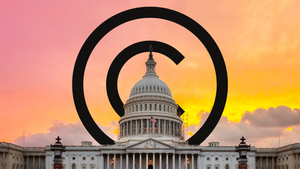Both the tech sector and the copyright industries in the US currently believe that the country’s current laws are adequate for dealing with the copyright challenges posed by generative AI. However, they have very different opinions on how those current laws should be applied.
As a result, US Congress will likely be asked to reform copyright law at some point, according to Shira Perlmutter, who heads up the US Copyright Office, and identifying the right reforms will be a challenge. Asked what keeps her awake at night, Perlmutter declared, “the speed at which all of this is developing”.
Congress and the Copyright Office both want to “act with due diligence as well as promptly enough to make a difference and to be ahead of the curve as needed” she added. But, “that is difficult to do when almost every week there is some new development being reported”.
Nevertheless, Congress will ultimately need to find a way to ensure copyright law doesn’t “impede the development” of generative AI, while also ensuring human creativity can “continue to thrive”.
To help with that process, the Copyright Office has undertaken a consultation on copyright and AI, and is publishing three reports based on that work. Companies and organisations from across the AI sector and the copyright industries, including the music industry, made submissions to the consultation.
At the heart of that project is the big debate over the copyright obligations of AI companies and whether those companies need to get permission before using copyright protected works as part of their AI training. On that issue, Perlmutter told the Senators, “by far the majority of them expressed the opinion that the existing law in the United States was adequate to deal with this issue”.
That position, Perlmutter added, is based “primarily on the fair use doctrine”. Under US law, if use of a copyright protected work is ‘fair use’, permission from the copyright owner is not required. The question here is whether training a generative AI model with existing content is fair use.
While both tech companies and copyright owners believe the fair use doctrine is fit for purpose in the context of AI, they totally disagree on whether or not AI training is fair use.
As Perlmutter noted, in the submissions made to the consultation, “views diverged strongly” on “what type of uses of copyrighted works in the development of AI systems constitute fair use and what types of uses do not qualify as fair use”.
Whether or not AI training is fair use is the central dispute in numerous lawsuits filed by copyright owners, including music companies, against AI businesses.
Perlmutter told Senators that she believes there are “about three dozen court cases pending” and, while judges have made summary judgements on some of the copyright claims in some of those lawsuits, “there are not yet any decisions addressing the critical fair use issue”.
When the first of those judgements is made in the lower courts - “in the next year or so”, Perlmutter predicted - opinion will likely change on whether or not US copyright law is adequate for dealing with AI matters.
While any judgements in the lower courts will be appealed, likely all the way up to the US Supreme Court, once there is a sense on which way the lower courts are going on this, lobbyists from either the AI sector or the copyright industries will likely start calling for legal reform.
So if the courts start to decide that AI training is not fair use, the AI companies will want the law amended to say it is. And if the courts start to decide AI training is fair use, the copyright industries will want the law amended to say it is not.
From next year the Republican Party will be in control of both the White House and Congress. Which could be good news for the copyright owners.
Ironically, while those working in the creative industries often skew towards the Democrats politically, the Republicans have often been strong allies on copyright matters, with the Democrats sometimes being accused of being too close to big tech.
That said, when it’s Donald Trump exercising the power and influence it’s much harder to predict how things will go. And when it comes to AI and copyright, Elon Musk may become a key player if he maintains his close alliance with Trump once he is actually back in the White House.
Though, while the outcome is hard to predict, the task ahead is clear. Having noted that, once court decisions on copyright and AI start to be made, “we may start to see parties come to Congress asking for some change”, Perlmutter set out the challenge Congress must then meet.
Congress must ensure, she said, that “we don't impede the development of this exciting technology”, but at the same time also ensure that “what is special about human creativity can continue to thrive”. Finding that balance “is a challenge and we will be trying to address that in the report”.
The first of the Copyright Office’s three reports was published earlier this year, looking at the legal challenges around AI-generated digital replicas. The subsequent two reports will look at whether AI-generated works should be protected by copyright and the tricky issue of fair use.

